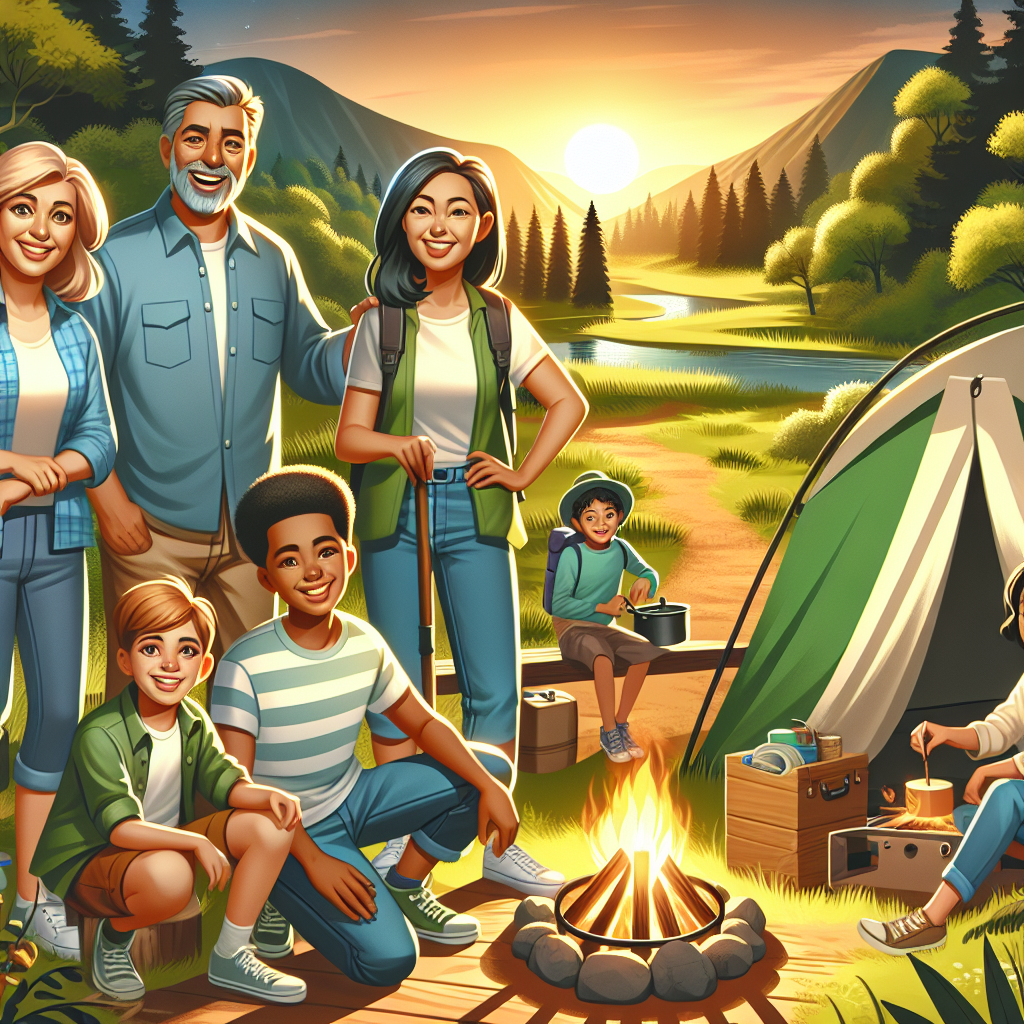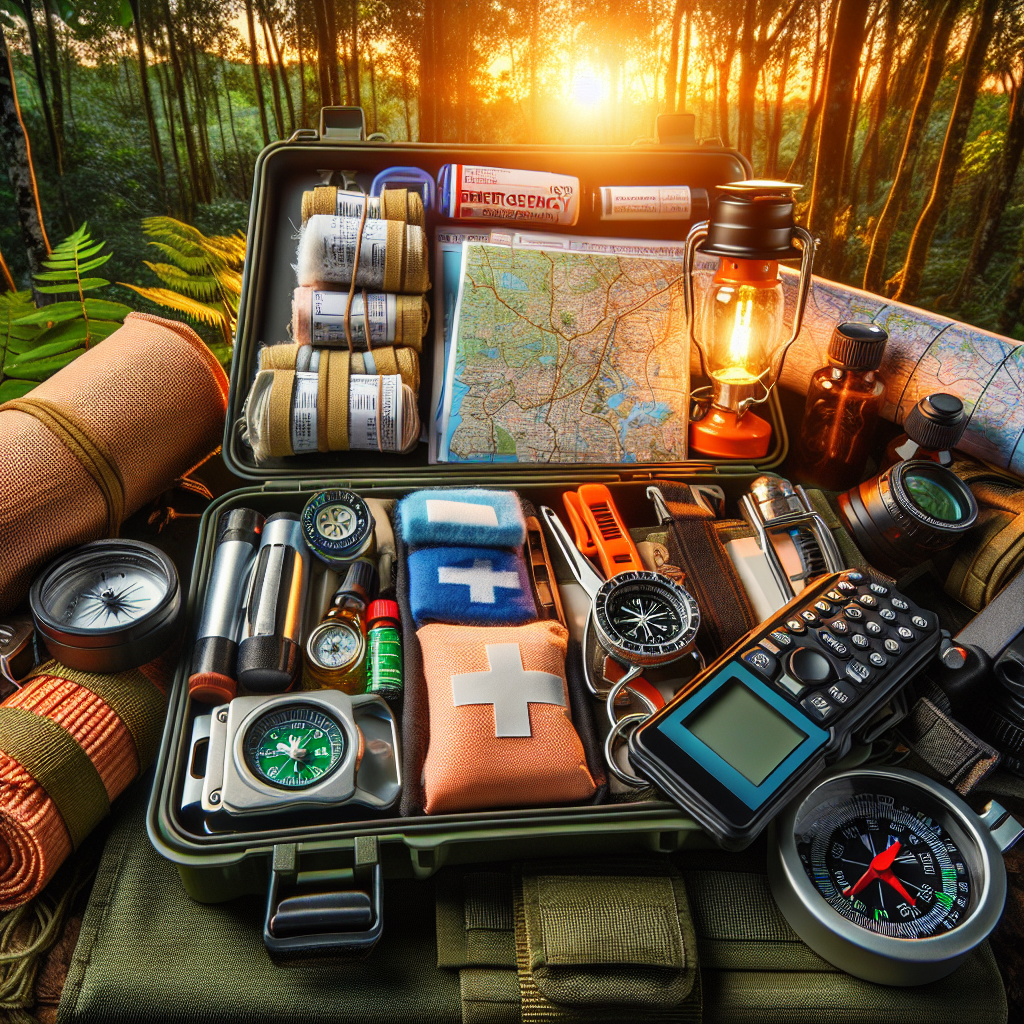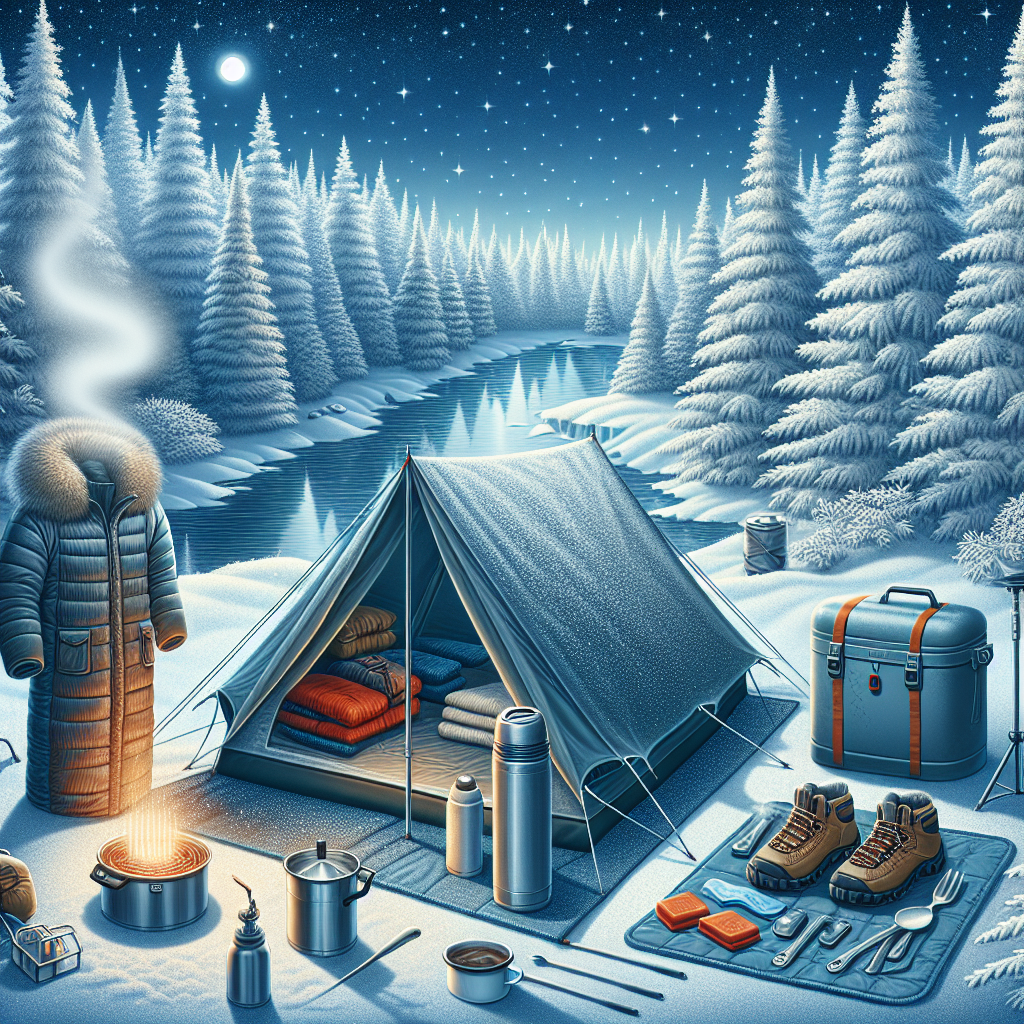Ready to create some lasting memories with your family? Look no further than camping with your kids! In this article, we’ll explore how to make camping a truly enjoyable experience for the whole family. From tips on choosing a family-friendly campsite to engaging activities that will keep everyone entertained, we’ve got you covered. Get ready for outdoor adventures, delicious campfire meals, and quality bonding time with your loved ones. Camping with kids has never been this fun!
Planning Your Family Camping Trip
Planning a family camping trip can be an exciting and rewarding experience for everyone involved. One of the first steps in planning a successful trip is to involve your kids in the planning process. By including them in the decision-making, they will feel more invested in the trip and have a sense of ownership. Let them choose the destination, the activities, and even help with creating a packing checklist. This will not only make the trip more enjoyable for them but also teach them valuable skills in organization and decision-making.
Choosing the right campsite is crucial when camping with kids. Look for campsites that are kid-friendly, meaning they have amenities and facilities that cater to children’s needs. Look for campgrounds that have playgrounds, swimming areas, and hiking trails suitable for all ages. It’s also important to ensure the campsites are safe and have adequate supervision. Read reviews from other families to get an idea of the campsite’s suitability before making a decision.
Timing your camping trip appropriately is another key aspect to consider. plan your trip during a time when the weather is pleasant and when your kids are most likely to be on school break. This way, they won’t miss out on important school activities, and everyone can fully enjoy the camping experience without the added stress of schoolwork. Consider the season, and make sure the weather is suitable for outdoor activities.
Creating a packing checklist is essential to ensure you have everything you need for a comfortable and enjoyable camping trip. This checklist should include not only the basics, such as tents, sleeping bags, and cooking utensils but also items specific to camping with kids. Don’t forget to pack extra clothes, toiletries, and any medications your child may need. It’s also a good idea to bring entertainment items, such as books, board games, and outdoor toys, to keep the kids engaged during downtime.
Preparing for different weather conditions is crucial when camping with kids. Be sure to check the weather forecast before your trip and pack accordingly. If rain is in the forecast, make sure you have rain gear, extra tarps, and waterproof containers for your belongings. On the other hand, if you’re camping in hot weather, pack plenty of sunscreen, hats, and cooling towels to keep everyone safe and comfortable. Being prepared for different weather conditions will ensure that your camping trip goes smoothly and that everyone stays happy and dry.
Essential Gear for Camping With Kids
When it comes to camping with kids, having the right gear can make all the difference in ensuring a successful and enjoyable experience. Here are some essential items to consider when camping with your little ones.
Selecting the right tent for family needs is crucial. Look for a tent that is spacious enough to accommodate everyone comfortably while providing adequate protection from the elements. Consider the number of people in your family and whether you plan on using separate sleeping areas or having everyone sleep together. A tent with multiple rooms or a separate area for kids can provide some privacy and make the camping experience more enjoyable for everyone.
Comfortable sleeping arrangements are essential for a good night’s sleep while camping. Invest in high-quality sleeping bags and sleeping pads to provide cushioning and insulation from the ground. For younger children, consider bringing a portable crib or travel bed to ensure they have a safe and comfortable place to sleep. Additionally, bringing extra blankets and pillows can make the sleeping arrangements even cozier.
Kid-specific camping gear can enhance the camping experience and make it more enjoyable for children. Consider bringing child-sized camping chairs, kid-friendly flashlights, and camping-themed books or toys to keep them entertained. Additionally, having their own camping gear, such as a small backpack or water bottle, can make them feel more involved and excited about the trip.
Safety equipment and first aid kits should always be a part of your camping gear. Make sure to have a well-stocked first aid kit that includes bandages, antiseptic ointment, insect repellent, and any necessary medications. Teach your children about basic first aid and safety procedures before the trip, and make sure they know how to use the first aid kit in case of an emergency. Additionally, invest in safety equipment such as a fire extinguisher, a whistle, and a reflective vest for each family member to ensure everyone’s safety while camping.

Kid-Friendly Camping Meals and Snacks
Food is a crucial part of any camping trip, and when it comes to camping with kids, it’s important to plan and prepare meals that are both delicious and kid-friendly. Here are some tips and ideas for making camping meals a fun and enjoyable experience for the whole family.
Planning and prepping meals beforehand can save you time and effort during your camping trip. Make a meal plan for each day of your trip and create a shopping list based on the ingredients needed. Pre-cook and pre-package ingredients and meals that can be easily reheated or assembled at the campsite. This will save you time and ensure that everyone gets a nutritious and delicious meal even in the great outdoors.
Easy campfire recipes for kids can be a fun way to involve them in the cooking process and give them a sense of accomplishment. Consider making classics like foil-wrapped hot dogs or sandwiches, which can be cooked directly over the campfire. Another option is to bring along a cast-iron skillet and cook up some one-pot meals, such as chili or pasta. Don’t forget to pack skewers for roasting marshmallows for a classic camping treat!
Healthy snacks and hydration are just as important as meals when camping with kids. Pack a variety of nutritious snacks such as fruits, granola bars, nuts, and trail mix. Encourage your kids to drink plenty of water or bring along reusable water bottles that can be refilled throughout the trip. It’s easy for kids to get caught up in the excitement of camping and forget to stay hydrated, so be sure to remind them and make it a priority.
Camp cooking safety and involving kids in the process is crucial to ensure everyone stays safe and has a positive experience. Before starting any cooking activities, teach your kids about campfire safety and the importance of staying away from the fire while it’s being used for cooking. Make sure they understand how to safely handle utensils and how to properly extinguish a fire. Additionally, involve them in simple cooking tasks such as stirring, measuring ingredients, and setting the table. This will not only teach them valuable skills but also make them feel like an integral part of the camping experience.
Fun and Educational Activities
Camping is not just about enjoying the great outdoors; it’s also an opportunity for fun and educational activities for the whole family. Here are some ideas to keep everyone entertained and engaged during your camping trip.
Nature walks and scavenger hunts are a great way to explore the surrounding environment and teach kids about the natural world. Before heading out, create a scavenger hunt list with items such as leaves, rocks, and animal tracks, and challenge your kids to find them. Encourage them to observe and learn about the plants and animals they encounter during the walk. You can also bring along a field guide to help identify different species and make it a learning experience.
Stargazing and night-time games can be a memorable and educational activity during camping trips. Take advantage of the lack of light pollution in the great outdoors and spend some time stargazing with your kids. Use a stargazing app or a guidebook to learn about different constellations and planets. You can also play simple night-time games, such as flashlight tag or storytelling around the campfire. These activities not only promote family bonding but also spark curiosity and wonder about the night sky.
Learning survival skills can be both fun and educational for kids. Teach them essential skills such as fire building, knot tying, and basic navigation. Show them how to set up a tent and cook a meal over a campfire. Not only will this provide them with valuable knowledge, but it will also increase their confidence and self-reliance. Remember to always supervise and ensure safety during these activities.
Crafts and nature art projects can be a creative way to engage kids during downtime at the campsite. Collect natural materials such as leaves, pine cones, and rocks, and use them to create artwork or crafts. Encourage your kids to use their imagination and create unique pieces. You can also bring along coloring books or sketch pads for a more structured artistic activity. These creative projects allow kids to express themselves while also appreciating the beauty of nature.
Ensuring Safety While Camping
When camping with kids, safety should always be a top priority. Here are some essential tips to ensure the safety of your family during your camping trip.
Teaching kids about wildlife safety is crucial when camping in areas inhabited by wild animals. Teach your children about the different animals they are likely to encounter and how to safely observe them from a distance. Emphasize the importance of not feeding or approaching wild animals. Teach them how to properly store food to prevent attracting unwanted visitors and being respectful of the animals’ natural habitat.
Campfire safety and supervision is vital when camping with kids. Teach your children about the dangers of fire and the importance of following fire safety guidelines. Make sure they understand to never play with fire and always have an adult present when the fire is lit. Establish a designated fire pit area and ensure that it is well-contained and away from any flammable materials. Always have a bucket of water or a fire extinguisher nearby for emergencies.
Water safety should be a concern when camping near lakes, rivers, or other bodies of water. Make sure your children understand the risks associated with water and teach them basic water safety rules, such as always swimming with a buddy and wearing a life jacket when appropriate. Supervise your children closely when they are near water and establish clear boundaries to prevent accidents.
Preventing lost children scenarios is essential to ensure everyone’s safety during the camping trip. Teach your children about staying within sight and calling for help if they become separated from the group. Establish meeting points and review them with your children. Consider giving each child a whistle or a walkie-talkie to use in case they get lost or need assistance. Ensure that younger children know their name, your phone number, and any other necessary contact information in case they need to ask for help.
Comfort Tips for Camping With Youngsters
Camping with young children presents its own challenges, but with some careful planning and preparation, you can ensure that everyone stays comfortable and happy throughout the trip.
Managing sleep routines while camping can be a bit tricky, but it’s important to try and maintain some semblance of a sleep schedule. Familiarize your children with the new sleeping arrangements before the trip by practicing in the backyard or setting up a tent in the living room. Bring along familiar bedding and comfort items from home to help ease the transition. Stick to regular bedtimes as much as possible and create a relaxing bedtime routine to help everyone wind down before sleep.
Dealing with potty training while outdoors requires some extra planning and preparation. If your child is in the midst of potty training, consider bringing along a portable potty seat or a travel-friendly toilet seat. Set up a designated area away from the campsite for bathroom breaks and encourage your child to use it regularly. Bring along plenty of extra diapers, training pants, and wipes to avoid any accidents.
Keeping kids comfortably dressed is essential to ensure their comfort and well-being while camping. Layering is key, especially in unpredictable weather conditions. Dress them in moisture-wicking base layers to keep them dry, followed by insulating layers such as fleece or sweaters. Top it off with a waterproof and wind-resistant outer layer to protect them from the elements. Don’t forget to pack extra socks and sturdy shoes to keep their feet dry and comfortable throughout the trip.
Technology and Entertainment During Camping
In today’s digital age, it’s important to find a balance between technology and the great outdoors. Here are some tips for regulating screen time and finding alternative entertainment options during your camping trip.
Regulating screen time when outdoors is essential to ensure that kids fully engage with the camping experience. Set clear rules and expectations regarding the use of electronic devices. Establish designated times when screens are allowed, such as during long car rides or during downtime before bed. Encourage alternative activities, such as exploring nature, playing games, or reading books, to keep them entertained without relying on screens.
Using technology for education and safety can be beneficial during camping trips. Utilize educational apps or nature-themed podcasts to help children learn about their surroundings and engage with the environment. Additionally, use GPS or mapping apps to teach children about navigation and orienteering. Just remember to use technology in moderation and balance it with other non-digital activities.
Non-digital entertainment options are abundant when camping. Encourage your children to explore nature, play outdoor games, or even start a scavenger hunt. Bring along board games, card games, or coloring books to provide entertainment during downtime. Plan group activities such as storytelling, singing songs, or even organizing a talent show. These activities promote family bonding, creativity, and a sense of adventure in the great outdoors.
Sustainable Camping With Kids
Teaching children about environmental responsibility is not only essential for their future but also for the sustainability of the camping experience. Here are some tips for practicing sustainable camping with kids.
Teaching the Leave No Trace principles is crucial when camping with kids. Teach them about the importance of leaving the campsite as you found it and the impact of litter on nature. Instill the habit of picking up trash and properly disposing of it, even if it’s not yours. Teach them about recycling and how to minimize waste during the trip. These principles will not only make a positive impact on the environment but also encourage children to be responsible global citizens.
Using eco-friendly camping gear and practices can significantly reduce your environmental footprint. Invest in reusable camping accessories such as utensils, plates, and cups to minimize waste. Use biodegradable or environmentally friendly cleaning products when washing dishes or cleaning up. Consider using a portable solar charger to power your devices instead of relying on traditional batteries or generators. These small changes can have a big impact on reducing your environmental impact.
Instilling environmental responsibility in children starts with educating them about the natural world and the importance of their role in preserving it. Teach them about local ecosystems, endangered species, and the concept of biodiversity. Encourage them to observe and appreciate the beauty of nature, and explain how their actions can impact it. In doing so, you are instilling a love and respect for the environment that will stay with them for a lifetime.
Dealing With Challenges and Mishaps
Despite careful planning, challenges and mishaps are inevitable during camping trips. Here are some tips for handling unexpected situations and ensuring everyone stays happy and engaged.
Preparing for the unexpected is crucial when camping with kids. Pack a basic camping toolkit that includes items such as duct tape, extra batteries, a multi-tool, and a camping stove repair kit. Familiarize yourself with basic first aid procedures and have a well-stocked first aid kit on hand. Additionally, bring along extra supplies such as blankets, towels, and additional food in case of emergencies or unforeseen circumstances.
Handling first-time camper fears is a common challenge for many children, especially if it’s their first camping experience. Be patient and understanding with their fears and concerns. Take the time to explain the camping experience to them and answer any questions they may have. Involve them in the planning process and allow them to bring a comfort item from home, such as a stuffed animal or blanket. Additionally, plan activities that they enjoy and try to make the camping trip as familiar and comfortable as possible.
Coping with weather-related issues can sometimes put a damper on the camping experience. However, with a positive attitude and some creativity, you can turn these challenges into opportunities for fun and bonding. If it’s raining, set up a sheltered area with games, books, and activities. If it’s hot, plan water-based activities such as swimming or water balloon fights. Encourage everyone to embrace the unique experiences that different weather conditions bring and make the most out of the situation.
Ensuring everyone stays happy and engaged throughout the camping trip requires a good balance of activities and downtime. Plan a mix of structured activities and free play time to allow everyone to recharge and relax. Keep a flexible schedule and be open to changing plans based on everyone’s needs and preferences. Remember that the goal of the camping trip is to create lasting memories and enjoy quality time together as a family.
Preparing for the Next Adventure
As your camping trip comes to an end, it’s important to review what worked and what didn’t to better prepare for future camping trips with kids. Here are some tips for evaluating your experience and planning for upcoming adventures.
Reviewing what worked and what didn’t during your camping trip is crucial for future planning. Take the time to reflect on the strengths and weaknesses of your camping experience, and brainstorm ways to improve for the next trip. Consider asking your children for their feedback and ideas on how to make the next camping trip even better. This reflection and evaluation process will help you fine-tune your planning and ensure that future camping trips are even more enjoyable for the whole family.
Maintaining and storing camping equipment properly is essential to ensure its longevity and usability for future trips. Clean and dry all equipment thoroughly before storing it to prevent mold or mildew. Check for any damage or wear and tear and repair or replace items as needed. Organize your equipment in labeled bins or storage containers to make it easily accessible for future camping trips. Taking care of your camping gear will save you time and money in the long run, and ensure that everything is ready for your next adventure.
Planning for future camping trips with kids is an exciting part of the camping experience. Use the knowledge and feedback gathered from this trip to plan future adventures that cater to everyone’s interests and preferences. Consider exploring different campgrounds, trying new activities, or extending the duration of your trips. Use online resources, community forums, or word-of-mouth recommendations to discover new camping destinations that are kid-friendly and offer unique experiences. By continuously planning and looking forward to future adventures, you keep the spirit of camping alive and the excitement alive within your family.
In conclusion, planning a family camping trip with kids can be an incredible experience filled with adventure, learning, and bonding. By involving your children in the planning process and choosing kid-friendly campsites, you create a sense of excitement and anticipation. Packing the right gear, preparing delicious and kid-friendly meals, and engaging in fun and educational activities ensure that everyone has a memorable and enjoyable time. Prioritizing safety, comfort, and sustainability sets a positive example for your children and instills a lifelong love for the great outdoors. With proper planning and a positive attitude, camping with kids can truly be a fun-filled adventure for the whole family.




